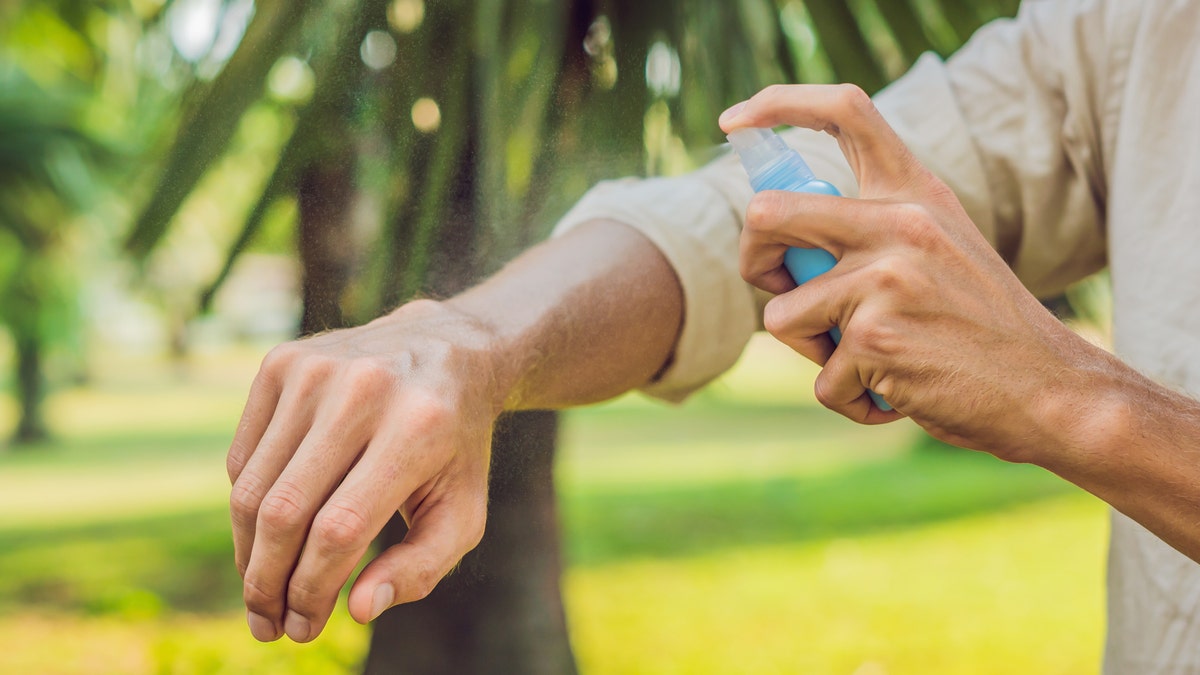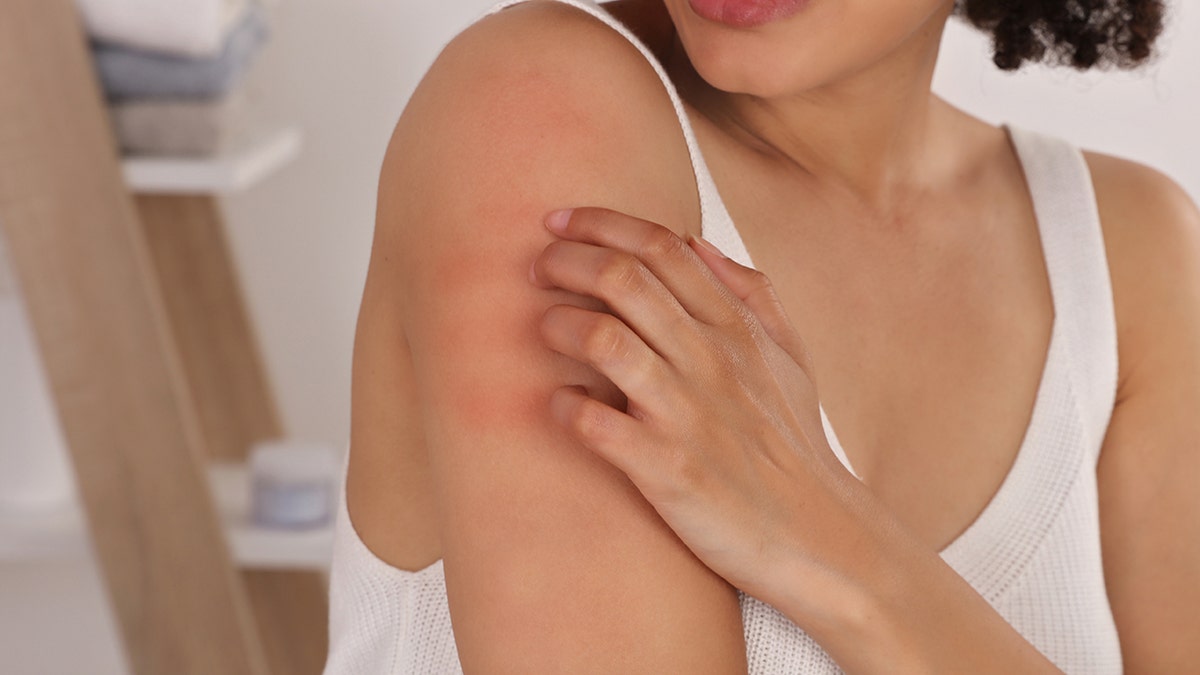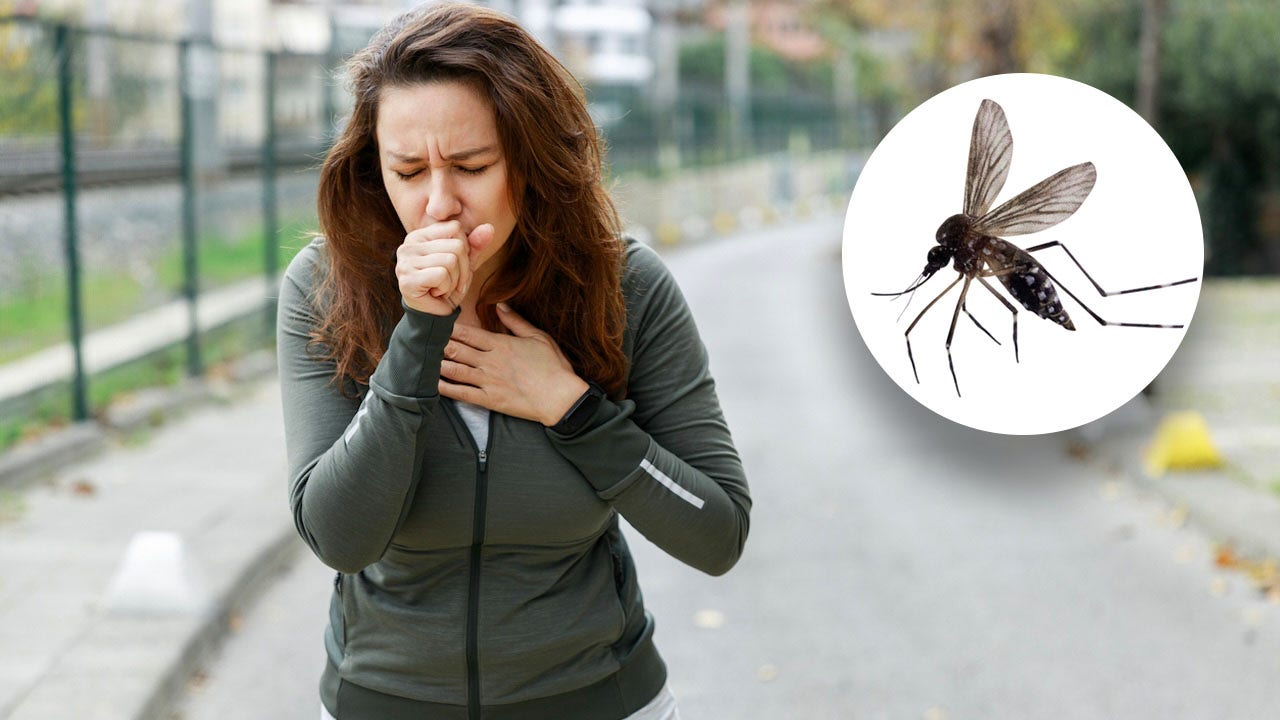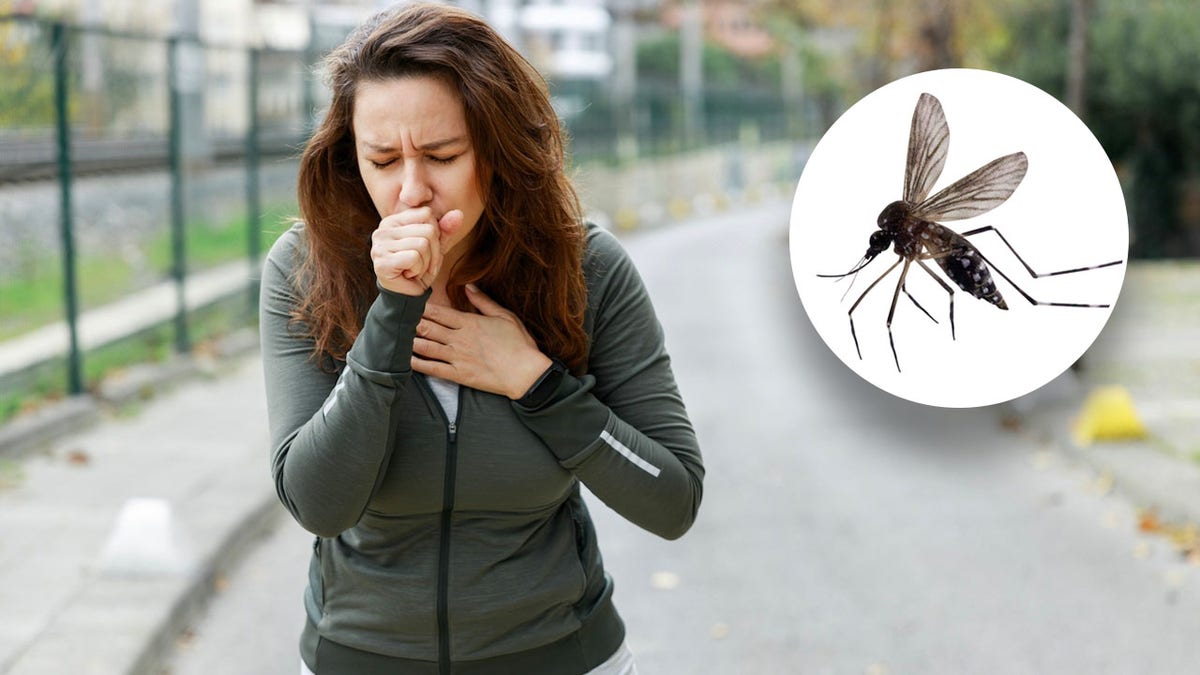Health
Ask a doctor: ‘How can I prevent scarring from bug bites and poison ivy?’

With the arrival of summer comes more time spent outdoors — which also means a greater risk of itchy skin conditions.
Bug bites and stings are naturally more prevalent in the warmer weather, which brings out more insects, according to the National Institutes of Health.
Also, exposure to skin-irritating plants — most notably, poison ivy — increases during the summer months.
5 TIPS FOR RAMPING UP YOUR SKIN CARE ROUTINE THIS SPRING FROM A BEAUTY EXPERT
As bug bites and conditions like poison ivy become more common, the resulting itching and scratching can wreak havoc on the skin.
To help reduce the likelihood of scabbing and scarring, Fox News Digital reached out to three medical doctors, who offered their best advice for conquering the itch and keeping skin healthy.
Bug bites and stings are naturally more prevalent in warmer weather, which brings out more insects, according to the National Institutes of Health. (iStock)
Here’s what to know.
What causes the itching?
Local skin reactions are caused by an inflammatory response to one or more of the substances injected by the biting insect or secreted by the offending plant or chemical, Mark Loafman, M.D., a board-certified family physician with Cook County Health in Chicago, told Fox News Digital.
CLICK HERE TO SIGN UP FOR OUR HEALTH NEWSLETTER
“This reaction typically remains localized,” he said.
“But in some cases, it can spread to cause a more systemic or more generalized reaction — either through our bloodstream or, as is the case with poison ivy and poison oak, by inadvertently spreading the substance to other areas with our hands and clothing.”
What causes scarring?
With bug bites or allergic reactions to poison ivy, the bites and rashes themselves do not typically cause disruption to the skin barrier, but they can cause a lot of inflammation, said Chris G. Adigun, M.D., a board-certified dermatologist with Dermatology & Laser Center of Chapel Hill in North Carolina.
The inflammation can lead to persistent redness and pigmentation, even if the bite or rash is not scratched.

Wearing protective clothing and using insect repellents, especially during the evening hours, can help prevent skin irritants, experts say. (iStock)
“This discoloration will resolve over time,” she told Fox News Digital.
If the bite or poison ivy is scratched, especially to the point that the skin barrier is disrupted and causes bleeding, that causes a wound that may leave a permanent scar, the doctor warned.
Tips to manage the itching
Once you’ve been bitten or see evidence of poison ivy, experts recommend administering prompt treatment with an over-the-counter anti-inflammatory cream, calamine lotion or 1% hydrocortisone cream.
If over-the-counter creams and gels don’t stop the itching, there are other, stronger medicines to try.
“Both poison ivy and bug bites are very itchy, and the sooner the inflammation is calmed down, the faster the healing process will be,” Lauren Fine, M.D., a board-certified dermatologist at Fine Dermatology in Chicago, told Fox News Digital.
IS IT JUST A MOSQUITO BITE — OR COULD IT BE ‘SKEETER SYNDROME’? HERE’S WHAT TO KNOW
“Often, the most skin damage is done from aggressive scratching, which will cause more itching and inflammation.”
If over-the-counter creams and gels don’t stop the itching, there are other, stronger medicines to try.

Once you’ve been bitten or see evidence of poison ivy, experts recommend administering prompt treatment with an over-the-counter anti-inflammatory cream, calamine lotion or 1% hydrocortisone cream. (iStock)
“Oral antihistamines can help with ongoing or recurring itchy skin problems, but be cautious about dosing and drug interactions,” said Loafman with Cook County Health.
It’s also important to be mindful of sun exposure, experts noted.
Fine recommended applying sunscreen to affected areas and keeping active lesions out the sun.
To prevent scratching and potential skin damage, she also suggested keeping bites and rashes covered so that there is less temptation to scratch.

Exposure to skin-irritating plants — most notably, poison ivy — increases during the summer months. (iStock)
Wearing protective clothing and using insect repellent, especially during the evening hours, can help prevent skin irritants, Fine said.
For best results, use products that contain active ingredients approved by both the Centers for Disease Control and Prevention (CDC) and the Environmental Protection Agency (EPA).
For more Health articles, visit www.foxnews/health
You can also check with your family doctor or a pharmacist for bug repellent suggestions, experts advise.
If extreme itching or skin disruptions continue, it’s wisest to check with a doctor or dermatologist as well. Some people are more sensitive to skin issues than others and may need prescription medication.

Health
What Happens If You Eat Eggs Every Day? Nutritionists Share the Benefits

Sign Up
Create a free account to access exclusive content, play games, solve puzzles, test your pop-culture knowledge and receive special offers.
Already have an account? Login
Forgot your password?
Get back to the Sign In
Use left and right arrow keys to navigate between menu items.
Use escape to exit the menu.
Health
Ask a doctor: ‘I swallowed a bug — now what should I do?'

Most people have experienced that moment of discomfort when they realize a bug has wound up where it shouldn’t be — in their windpipe.
That includes Taylor Swift, who on more than one occasion has accidentally swallowed a bug while performing on stage in front of thousands of people.
It can be a startling and somewhat disgusting occurrence — but is this dangerous, or just a nuisance?
LOCAL DENGUE FEVER CASES CONFIRMED IN FLORIDA KEYS, SPREAD BY MOSQUITO BITES
Dr. Raj Dasgupta, a quadruple board-certified physician in California, shared with Fox News Digital the true impacts of accidentally swallowing a bug, and the best thing to do if it happens.
“Swallowing a bug can often happen accidentally when you’re eating or drinking outside, or if a bug flies into your mouth,” Dasgupta, who serves as chief medical advisor for Fortune Recommends, told Fox News Digital via email.
Dr. Raj Dasgupta, a quadruple board-certified physician in California, discussed the impact of accidentally swallowing a bug — and the best thing to do if it happens. (Sleepoplis)
“It can also happen if you’re talking or laughing outdoors. Sometimes it might even happen indoors if bugs are in your food or drink and you don’t realize it.”
ASK A DOCTOR: ‘HOW CAN I PREVENT SCARRING FROM BUG BITES AND POISON IVY?’
Swallowing a bug is usually not dangerous, Dasgupta noted.
“The stomach’s digestive acids usually break down the bug, and it is passed out of the body without causing harm,” he said.

“Swallowing a bug can happen accidentally when you’re eating or drinking outside, or if a bug flies into your mouth,” the doctor told Fox News Digital. (iStock)
If the bug carries harmful bacteria or parasites, however, it could cause gastrointestinal issues or allergic reactions, according to the doctor.
The type of bug can make a difference, he said.
“Bugs like beetles or ants are less of a concern, but bugs that are known to spread diseases — such as mosquitoes — might be riskier.”
If you happen to swallow a bug, drinking some water can help wash it down, Dasgupta said.

Taylor Swift has announced the accidental swallowing of bugs, mid-concert, on more than one occasion. (Marcelo Endelli/TAS23/Getty Images for TAS Rights Management)
“If you start feeling sick, like abdominal pain, vomiting or nausea, keep an eye on your symptoms,” the doctor said.
If you have severe stomach pain, ongoing vomiting, trouble breathing, or swelling, rash or itching, Dasgupta said to see a doctor.
CLICK HERE TO SIGN UP FOR OUR HEALTH NEWSLETTER
“If you know the bug could have diseases or if you have health conditions that might complicate things, it’s a good idea to get checked out to be safe,” he added.
For more Health articles, visit www.foxnews/health
Some bugs — including grasshoppers, beetles, termites, mealworms and even stink bugs — are actually considered edible in certain countries, and are prepared and eaten as part of meals, according to WebMD’s website.
Health
“I’m a Dietitian, and Here’s Why an Overly Restrictive Diet Can Backfire”

Sign Up
Create a free account to access exclusive content, play games, solve puzzles, test your pop-culture knowledge and receive special offers.
Already have an account? Login
Forgot your password?
Get back to the Sign In
Use left and right arrow keys to navigate between menu items.
Use escape to exit the menu.
-

 World1 week ago
World1 week agoOne dead after car crashes into restaurant in Paris
-

 Midwest1 week ago
Midwest1 week agoMichigan rep posts video response to Stephen Colbert's joke about his RNC speech: 'Touché'
-

 News1 week ago
News1 week agoVideo: Young Republicans on Why Their Party Isn’t Reaching Gen Z (And What They Can Do About It)
-

 News1 week ago
News1 week agoIn Milwaukee, Black Voters Struggle to Find a Home With Either Party
-

 Politics1 week ago
Politics1 week agoFox News Politics: The Call is Coming from Inside the House
-

 News1 week ago
News1 week agoVideo: J.D. Vance Accepts Vice-Presidential Nomination
-

 Movie Reviews1 week ago
Movie Reviews1 week agoMovie Review: A new generation drives into the storm in rousing ‘Twisters’
-

 World1 week ago
World1 week agoTrump to take RNC stage for first speech since assassination attempt
















